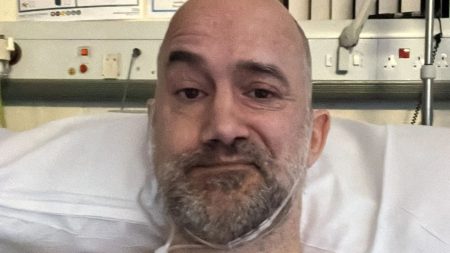The UK is experiencing a significant surge in norovirus cases, prompting a “stay home” warning from the National Health Service (NHS). This highly contagious stomach bug, commonly known as the winter vomiting bug, spreads rapidly through close contact and contaminated food, posing a particular concern during periods of social gatherings like holiday festivities. The UK Health Security Agency (UKHSA) reported a 33.2% increase in norovirus cases in just two weeks, from November 18th to December 1st, 2024. This alarming rise represents more than double the typical number of cases expected for this time of year, marking a 114% increase compared to historical data. The NHS has taken to social media to advise individuals experiencing norovirus symptoms to stay home, prioritize rest, and maintain adequate hydration.
Norovirus manifests with a range of unpleasant symptoms, primarily nausea, vomiting, and diarrhea. These gastrointestinal issues are often accompanied by a high fever, headaches, and aching limbs. Symptoms typically emerge within one to two days of infection. Due to its highly contagious nature, individuals are strongly advised to remain away from work or school for at least 48 hours after their symptoms subside, even in the absence of vomiting or diarrhea. This precautionary measure aims to curb the spread of the virus, particularly in vulnerable settings like hospitals and care homes, where the impact of an outbreak can be severe. The NHS emphasizes the crucial role of hand hygiene, specifically washing with soap and water, in preventing norovirus transmission. Notably, alcohol-based sanitizers are ineffective against this particular virus. While most cases can be managed at home with rest and hydration, parents are urged to seek medical advice by calling 111 if their baby under one year old develops symptoms.
Several factors contribute to the recent surge in norovirus cases. The UKHSA points to the increased utilization of advanced PCR multiplex testing, capable of detecting multiple gastrointestinal pathogens simultaneously, as one contributing factor. This enhanced testing capability could be leading to a higher detection rate. Furthermore, the agency suggests that the virus itself may have undergone changes following the COVID-19 pandemic, potentially impacting its transmissibility or prevalence. Another significant contributing factor is the emergence of a new norovirus genotype, designated GII.17. This variant has been identified in a majority of cases during the current 2024/2025 norovirus season, representing 66.3% of the samples analyzed within genogroup 2 (GII), which accounts for 89% of all norovirus cases. While the GII.17 variant is being closely monitored, there is currently no indication that it causes more severe illness than other norovirus strains.
The reported norovirus cases likely represent only a fraction of the true burden of illness. The UKHSA estimates that for every reported case, approximately 288 infections go unreported in the community, suggesting an annual total of around 3 million cases across the UK. This underscores the importance of preventative measures and public awareness campaigns to mitigate the spread of the virus.
Norovirus typically presents with a combination of nausea, vomiting, and diarrhea, potentially accompanied by fever, stomach pain, and body aches. The persistent vomiting and diarrhea associated with norovirus infection can lead to dehydration, which poses a particular risk to vulnerable groups like young children, older adults, and individuals with compromised immune systems. Maintaining adequate hydration by consuming plenty of fluids is paramount during illness to replace fluids lost through vomiting and diarrhea. Symptoms often onset suddenly but generally improve within two to three days. The infectious period is highest during active symptoms, hence the recommendation to stay away from work or school until 48 hours after symptoms have resolved.
Managing norovirus primarily involves supportive care focused on hydration, rest, and dietary adjustments. Individuals experiencing norovirus are advised to stay hydrated by drinking plenty of fluids, such as water or electrolyte drinks. Rest is essential for recovery, and as appetite returns, bland foods like toast, crackers, rice, and pasta are recommended. Over-the-counter medications for symptom relief can be considered, but consulting a doctor is advised. Most individuals recover within one to three days. However, certain symptoms warrant immediate medical attention. Individuals should seek emergency medical care (call 999 or go to A&E) if they experience blood or coffee-ground-like vomit, green vomit (adults), yellow-green or green vomit (children), suspect poisoning, develop a stiff neck and light sensitivity, or experience a sudden, severe headache or stomach ache. These symptoms could indicate a more serious condition requiring urgent medical intervention.
The rise in norovirus cases highlights the importance of public health measures to control its spread. Continued monitoring of the emerging GII.17 variant is crucial to understand its characteristics and potential impact. Individuals can protect themselves and others by practicing diligent hand hygiene, staying home when ill, and seeking medical advice when necessary. While the current surge is concerning, most cases resolve within a few days with appropriate supportive care. The ongoing surveillance and public health messaging will play a vital role in mitigating the impact of this widespread virus.











